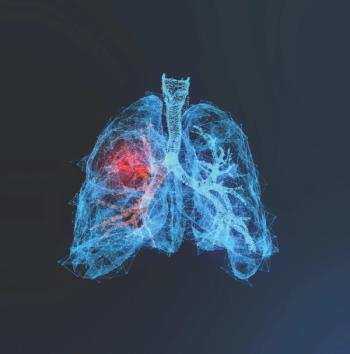Articles by David R. Gandara, MD

ONCOLOGY® recently sat down with David R. Gandara, MD, director of the thoracic oncology program and senior advisor to the director of the University of California (UC) Davis Comprehensive Cancer Center, to discuss the impact of the pandemic on the current management and treatment of patients with lung cancer, as well as the future of education and patient care in a post–COVID-19 world.

Stage IB non–small-cell lung carcinoma (NSCLC) represents a subset of early-stage, resectable NSCLC, usually treated with curative intent, but with historically modest 5-year survival rates ranging from 40% to 67% with surgical resection alone.[1,2] Disappointingly, modern adjuvant chemotherapy trials including stage IB patients have shown little evidence of chemotherapeutic benefit.

Lung cancer is the leading cause of cancer mortality in the United States. A significant number of patients present with disease involving mediastinal lymph nodes. As survival after surgery alone for stage III disease is poor, radiation therapy and chemotherapy have been evaluated in the neoadjuvant and adjuvant settings to improve outcomes. The benefit of adjuvant chemotherapy in the subgroup of patients with N2 disease is uncertain. Small randomized trials enrolling patients with stage III disease have shown a benefit of neoadjuvant chemotherapy over surgery alone. Whether neoadjuvant chemotherapy is superior to adjuvant chemotherapy is under investigation. Furthermore, whether neoadjuvant chemoradiotherapy is superior to neoadjuvant chemotherapy is controversial, and few randomized studies comparing these approaches have been reported. Nevertheless, neoadjuvant chemoradiotherapy appears to be associated with higher rates of resection, higher rates of clearance of mediastinal nodal disease, and better local/regional control. The use of postoperative radiation therapy (PORT) has declined since the publication of the 1998 meta-analysis suggested a detriment in survival with this strategy. However, radiation techniques are improving and emerging data support the use of carefully delivered PORT. Finally, it remains unclear whether surgical resection offers an advantage over definitive chemoradiotherapy alone for stage III disease. In summary, locally advanced NSCLC remains a formidable challenge with few cures, and optimal treatment requires the careful use of surgery, chemotherapy, and radiation therapy.

Evolution of Combined Modality Therapy for Stage III Non–Small-Cell Lung Cancer
ByDavid R. Gandara, MD,Martin Edelman, MD,Primo N. Lara, Jr, MD,Derick H. M. Lau, MD, PhD,Peter Roberts, MD,Bryan R. Leigh, MD A number of randomized clinical trials and meta-analyses now support the conclusion that combined modality regimens that include cisplatin (Platinol)-based chemotherapy improve survival in stage III non–small-cell lung

Platinum compounds, either cisplatin (Platinol) or carboplatin (Paraplatin), in combination with a number of new chemotherapeutic agents, have demonstrated improved response or survival compared to cisplatin alone or older

The article by Drs. Gordon and Vokes provides the reader with a comprehensive overview of the treatment of locally advanced unresectable non–small-cell lung cancer (NSCLC) with chemotherapy and radiation therapy. The authors

Combined-modality therapy integrating chemotherapy with radiotherapy and/or surgery is playing an increasing role in the day-to-day management of a wide variety of solid tumors. No longer is this approach solely a clinical research tool. In fact, in


